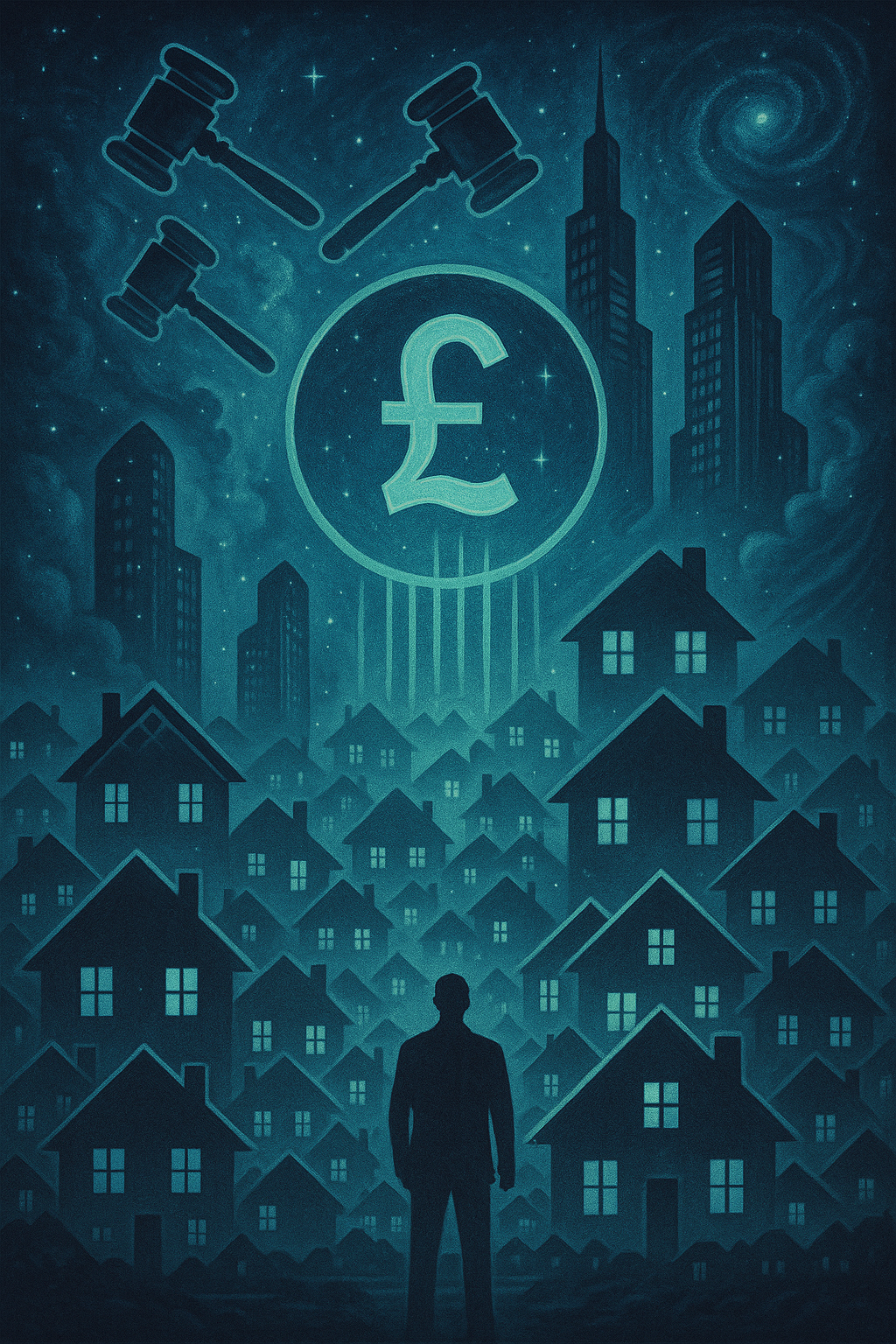The British Pound: A Centuries-Long Decline in Value—Are We All Just Bag Holding a Fiat Hawk Tuah Coin?
Popular articles
Problem: The British Pound’s Relentless Decline in Purchasing Power
The British pound, one of the oldest currencies still in use, has been a cornerstone of global finance for centuries. But let’s cut through the establishment narrative: since its inception around the 8th century, the pound has been on a steady decline in purchasing power, especially since it became a fiat currency. It’s not a store of value—it’s a leaking bucket, and we’re all forced to use it, much like being stuck bag holding a meme coin like Hawk Tuah (HAWKTUAH), which soared to a $490 million market cap in December 2024 before crashing 95% in minutes.
Historical data paints a grim picture. In the year 980, during the reign of King Aethelred the Unready, one pound could buy 15 head of cattle. By 2000, its purchasing power had fallen 400-fold, according to David Sinclair’s The Pound: A Biography. The House of Commons Library estimated that between 1750 and 1998, prices in the UK rose 118 times—meaning a penny in 1750 had more purchasing power than a pound in 1998. Most of this inflation hit after 1945, as the pound transitioned from being backed by silver and gold to a fiat currency.
Let’s zoom in on the 20th and 21st centuries. In the 1920s, £1 was worth about $5 USD. By the end of World War II, it had slumped to $3.25, and a 1949 devaluation dropped it to $2.80—a 30% cut. The 1967 devaluation slashed it another 14%, bringing it to $2.40. The 1992 Black Wednesday crisis saw it crash 15% to $1.51 after the UK exited the European Exchange Rate Mechanism. The 2016 Brexit vote dumped it 11% to $1.33, a 31-year low. By 2022, amid the mini-budget crisis under Liz Truss, it hit $1.03, teetering on the edge of dollar parity. As of March 2025, posts on X note that £1 buys $1.27 USD, a 23% loss in global value since 2000, with UK inflation averaging 7.8% in 2023 alone.
The pound’s decline isn’t just a number—it’s a slow-motion robbery. Over the last 40 years, it has lost 70% of its purchasing power. Since 2010, it’s down 38%, with a cumulative price increase of 60.69% due to an average inflation rate of 3.45% per year. The Bank of England’s policies, like quantitative easing and interest rate hikes (5.25% in 2023), have failed to stop the bleed. Mortgage payments are up 55%, rent 28%, and food prices are soaring. The pound, as a fiat currency, is a forced bet—like being stuck holding Hawk Tuah coin after its hype fizzled out, leaving investors with a 95% loss.
Impact: Forced to Use a Devaluing Currency—One Ring to Rule Them All
The impact of the pound’s decline is profound, and it’s not just about numbers on a chart—it’s about the erosion of freedom and choice. The British pound, as a fiat currency, is the “one currency to rule them all” in the UK. You’re forced to use it for taxes, trade, and daily life, with no legal alternative. This mirrors the Hawk Tuah coin saga: investors were lured by viral hype, only to be left holding a near-worthless asset when the bubble burst. The pound’s decline forces us into a similar trap—except this bag holding has been going on for centuries.
Economically, the pound’s loss of purchasing power hits hard. In 2000, £1 bought $1.65 USD; today, it’s $1.27, a 23% drop in global value. This means your savings, wages, and assets are worth less on the world stage. Inflation compounds the problem: a 7.8% rate in 2023 means your money buys less each year—groceries, rent, and mortgages all cost more. The Bank of England’s interest rate hikes to 5.25% in 2023 aimed to curb inflation but squeezed borrowers, with mortgage payments up 55%. This isn’t just a financial hit; it’s a loss of economic freedom, as your ability to save and plan for the future erodes.
Socially, the impact is a growing sense of betrayal. The pound’s decline reflects a failure of successive governments to protect the value of the people’s money. As one X post put it, “Sterling is a national disgrace… an appalling betrayal by successive leaderships.” When you devalue a currency, you devalue labor, savings, and assets—everything that makes up a person’s economic life. The forced use of this declining currency mirrors the lack of choice in the Hawk Tuah coin scenario: investors had no alternative but to hold as the value tanked, just as UK citizens have no alternative to the pound.
Globally, the pound’s fall from grace is stark. Once the world’s reserve currency, worth $5 in the 1920s, it’s now a shadow of its former self at $1.27. This decline affects the UK’s standing in global markets—imports cost more, exports struggle to compete, and foreign investment wavers. The 2022 mini-budget crisis under Liz Truss damaged the UK’s financial reputation, making the pound a laughingstock, as noted in financial analyses. The forced reliance on a single, devaluing currency strips away sovereignty, much like being stuck with a meme coin that’s lost 95% of its value—no exit, no choice, just a slow bleed.
Action: Reclaim Your Financial Freedom—Challenge the Fiat Monopoly
So, what can we do about this centuries-long decline of the British pound? The Sovereign Liberty Index isn’t here to just point out problems—we’re about solutions that empower you to reclaim your freedom. Here are three actionable steps to break free from the fiat currency trap and stop bag holding the equivalent of a Hawk Tuah coin:
Diversify Your Wealth Beyond Fiat: The pound’s decline shows that fiat currencies are a losing bet over the long term. Diversify your savings into assets that hold or grow in value—think gold, silver, or cryptocurrencies like Bitcoin, which aren’t tied to any government’s inflationary policies. Gold, for instance, has been a stable store of value for centuries, unlike the pound, which lost 400 times its purchasing power from the 15th century to 2000. While crypto can be volatile (Hawk Tuah coin’s 95% crash is a cautionary tale), established coins like Bitcoin have shown resilience against fiat inflation over the past decade.
Advocate for Currency Choice: The forced use of the pound is a monopoly on your financial freedom. Push for legal alternatives—support movements that allow businesses and individuals to transact in other currencies or digital assets. Imagine if you could pay taxes in Bitcoin or gold, or if local communities could issue their own currencies. This isn’t a pipe dream; countries like El Salvador have adopted Bitcoin as legal tender. Challenging the “one currency to rule them all” mindset is a step toward true economic sovereignty.
Educate and Prepare for Inflation: Inflation isn’t going away—the pound’s 70% purchasing power loss over 40 years proves that. Educate yourself on how to hedge against it: invest in inflation-resistant assets like real estate or stocks, and keep an eye on the Bank of England’s moves. Their 5.25% interest rate hike in 2023 shows they’ll prioritize inflation control over your financial well-being. Stay informed through SLI’s “Data Hub” and “Performance Insights” pages, where we’ll track these trends and provide tools to protect your wealth.
The British pound’s decline isn’t just a historical curiosity—it’s a warning. We’re all bag holding a fiat currency that’s lost value for centuries, much like investors stuck with Hawk Tuah coin after its hype faded. But you don’t have to accept this as your fate. By diversifying your wealth, advocating for currency choice, and preparing for inflation, you can reclaim your financial freedom. Join the Sovereign Liberty Index community—let’s challenge the fiat monopoly and build a future where value isn’t dictated by a single, declining currency.
Subscribe to unlock premium content
Sed at tellus, pharetra lacus, aenean risus non nisl ultricies commodo diam aliquet arcu enim eu leo porttitor habitasse adipiscing porttitor varius ultricies facilisis viverra lacus neque.
The Great Wealth Generation Act 1.0

The Great Democracy Restoration Act

UK Nutrition Act 1.0

The Great Wealth Generation Act 1.0

The Great Democracy Restoration Act

The Great Wealth Generation Act 1.0







